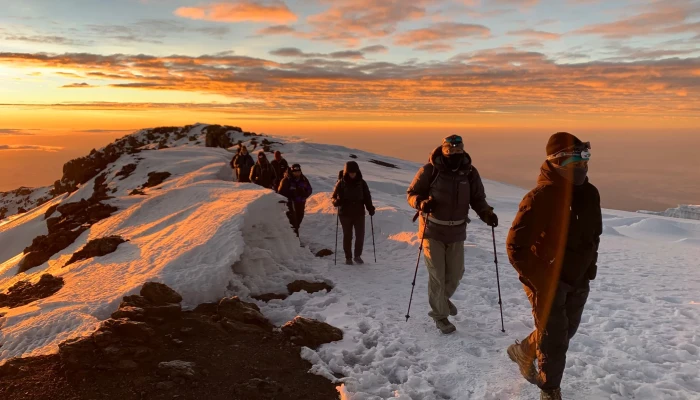
Posted by:
luck
Tour Expert
TRAVEL ADVICE
Travel Advice for Tanzania
Traveling to Tanzania can be an enriching and unforgettable experience with its stunning landscapes, rich wildlife, and vibrant cultures. To ensure a safe and enjoyable trip, here’s a comprehensive guide with essential travel advice.
Before You Go
Passports and Visas
- Ensure your passport is valid for at least six months from your date of entry.
- Most travelers need a visa to enter Tanzania. You can obtain a visa upon arrival or apply for an e-visa online before departure.
Vaccinations and Health
- Required: Yellow fever vaccination if arriving from a yellow fever endemic country.
- Recommended: Hepatitis A and B, Typhoid, Tetanus, Rabies, and Cholera vaccinations.
- Malaria Prophylaxis: Tanzania is a malaria-risk country. Consult your doctor for appropriate prophylaxis.
Travel Insurance
- Comprehensive travel insurance covering health, accidents, theft, and trip cancellations is essential.
Currency and Banking
- The currency is the Tanzanian Shilling (TZS).
- US dollars are widely accepted, especially in tourist areas.
- ATMs are available in major cities and towns. Credit cards are accepted in most hotels and lodges, but carry some cash for remote areas.
Packing Tips
Clothing
- Lightweight, breathable fabrics for hot weather.
- Long-sleeved shirts and trousers for evenings to protect against mosquitoes.
- Warm layers for early morning and evening safaris.
- Waterproof jacket for the rainy season.
- Comfortable walking shoes or boots.
- Swimwear for beach destinations.
Essentials
- Sun hat, sunglasses, and sunscreen.
- Insect repellent with DEET.
- Personal first aid kit and any prescription medications.
- Binoculars and a good camera with extra batteries and memory cards.
- Reusable water bottle.
Safety Tips
Health and Safety
- Drink bottled or filtered water and avoid ice in drinks.
- Practice good hygiene and use hand sanitizer.
- Avoid swimming in freshwater lakes due to the risk of bilharzia.
Personal Safety
- Keep valuables secure and avoid displaying expensive items.
- Be cautious when using ATMs and avoid withdrawing large amounts of cash.
- Use reputable taxi services or arrange transportation through your hotel.
- Be aware of your surroundings and avoid walking alone at night.
Wildlife Safety
- Follow the instructions of your safari guide.
- Never approach or feed wildlife.
- Stay inside your vehicle during game drives unless instructed otherwise by your guide.
Cultural Etiquette
Respect Local Customs
- Dress modestly, especially in rural areas and when visiting religious sites.
- Greet people with a friendly "Jambo" (hello) or "Habari" (how are you?).
- Ask for permission before taking photos of people.
Tipping
- Tipping is customary for good service. Common guidelines:
- Safari guide: $10-20 per person per day.
- Lodge staff: $5-10 per person per day.
- Porters: $1-2 per bag.
- Restaurants: 5-10% of the bill.
- Tipping is customary for good service. Common guidelines:
Transportation
Getting Around
- Domestic flights are a convenient way to travel between major parks and cities.
- Road travel can be slow due to road conditions. Consider hiring a 4x4 vehicle for remote areas.
- Public buses and minibusses (dala-dalas) are available but can be crowded and less reliable.
Driving
- Driving is on the left-hand side.
- An international driving permit is required.
- Be cautious of pedestrians, livestock, and poor road conditions.
Communications
- Internet and Mobile Phones
- Wi-Fi is available in most hotels and lodges but can be slow in remote areas.
- Purchase a local SIM card for better connectivity. Major providers include Vodacom, Airtel, and Tigo.
Responsible Travel
Environment
- Follow the Leave No Trace principles.
- Do not litter and dispose of waste properly.
- Respect wildlife and do not disturb natural habitats.
Community
- Support local businesses and artisans by buying locally made products.
- Participate in community-based tourism initiatives.
Emergencies
- Emergency Contacts
- Police: 112
- Ambulance: 115
- Tourist Helpline: Your tour operator or hotel can provide assistance.
Conclusion
Tanzania offers an incredible array of experiences, from the Serengeti's vast savannahs and the majestic Mount Kilimanjaro to the idyllic beaches of Zanzibar. With proper preparation and mindfulness, you can ensure a safe and memorable journey. Enjoy your adventure!
Need something more ...?
View by Tags
- Adventure Serengeti Balloon Safaris
- Honeymoon Serengeti Honeymoon Safaris
- Tanzania safaris Serengeti Safaris in Tanzania
- Adventure SUGGESTIONS FOR SAFARI?
- Culture THE WEATHER IN TANZANIA
- Nature TRAVEL ADVICE
- Trek WHAT TIME OF DAY IS BEST FOR CLIMBING KILIMANJARO?
- Safari When is the best time to park on a Tanzania safari?
- Bigfive Where in Tanzania can I witness migration and the Big Five?
- Beach ZANZIBAR POPULARITY